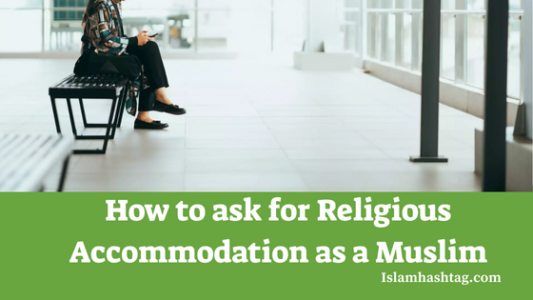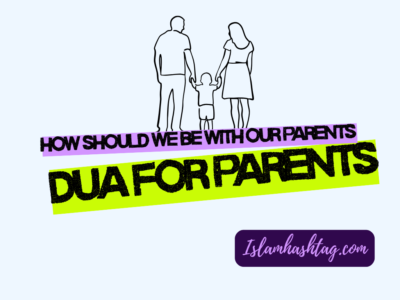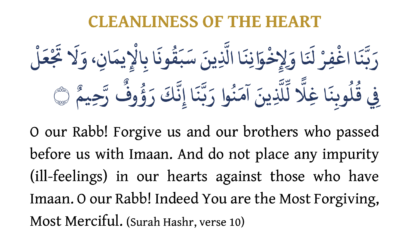How to ask for Religious Accommodation as a Muslim in US?
“Over the last couple of years, awareness around religious accommodation has really grown.
What are some common religious accommodations sought in the workplace?
- Applicants and employees may request accommodations in the workplace to adhere to their religious beliefs or practices.
- Employers can grant these accommodations for religious reasons but may refuse them for secular reasons.
- Common religious accommodations include exceptions to dress and grooming codes, such as for Pentecostal Christian women who don’t wear pants or short skirts, Muslim women who wear hijab, or Jewish men who wear yarmulkes.
- Examples of accommodations include schedule changes for Catholic employees to attend church services, excusing atheists from religious invocations at meetings, or accommodating religious objections to tasks like filling birth control prescriptions.
- Other examples include granting unpaid leave for Native American ceremonies, adjusting break schedules for Muslim prayers, or accommodating the prohibition of work on one’s Sabbath.
How to ask for Religious Accommodation as a Muslim Student?
If a student requests a reasonable accommodation, the school is expected to try and provide it for them.
The First Amendment’s Religion Clauses prohibit the government from making any law respecting an establishment of religion, or prohibiting the free exercise thereof.
Together, the Free Exercise and Establishment Clauses guarantee religious freedom,deeming religious beliefs and religious expression
(ref)
The school are expected to:
- Excuse absences for religious observances or activities
- Waive certain dress codes and school uniform requirements
- Allow students the right to pray in a non-disruptive manner
- Allow students to express their faith in school/school assignments
- Allow students to discuss religion with other students
How to ask for Religious Accommodation as a Muslim employee?
In many workplaces places managers are respectful and aware of the fact that their staff need to fulfill religious obligations and observances.
An Employer’s Guide to Islamic Religious Practices,”
The Council on American-Islamic Relations (CAIR), a Washington-based Islamic advocacy group, published a booklet called “An Employer’s Guide to Islamic Religious Practices,” to help employers devise and implement policies that can create a culturally sensitive working environment. It provides information on U.S. legal protections of religious rights, common Islamic religious practices, and ways in which employers can accommodate their Muslim employees.
Employers should become familiar with Islamic practices and the Islamic dress code to ensure religious accommodation in the workplace. Islam prescribes that women and men dress modestly. Muslim men are to be covered from the navel to the knee. Some men might also wear a beard and/or a small skullcap. Muslim women wear loose, non-revealing clothing, which includes covering of the hair and neck with a head scarf. Styles vary, but women wear clothing that covers the entire body except for the face and hands. Company dress code policies may have to be modified so that religiously mandated attire is addressed as a diversity issue.
According to the US equal employment opportunity commission, An applicant or employee may need a reasonable accommodation (a change to the way things are normally done at work) so he can practice or observe his religion.
For example, an applicant may ask to reschedule an interview that is on a religious holiday or an employee may request an exception to a “no hats” rule to wear a religious head covering, such as a yarmulke or hijab.
The law protects.
The law protects people who have sincere religious, ethical or moral beliefs. This includes people who belong to traditional, organized religions, such as Buddhism, Christianity, Hinduism, Islam, Judaism or Sikhism, and others.
The companies are expected to:
- Consider the request. Don’t automatically refuse an accommodation request or have an inflexible policy that doesn’t allow for exceptions.
- Review each request individually. Avoid assumptions about religious beliefs or practices or appropriate accommodations.
- Discuss the request with the applicant or employee if needed to ensure you understand the employee’s religious needs and available accommodation options. For example, if an employee requests a schedule change so she can attend religious services, you may want to discuss when the services take place and the conflicts posed by the employee’s current schedule so you can determine whether a schedule adjustment is possible.
- Provide an effective accommodation, unless doing so would require more than minimal cost, based on your resources and the operation of your business.
- Be receptive to additional accommodation requests. An employee’s religious beliefs and work responsibilities may change over time, resulting in additional or alternative accommodation requests.
Discover more from Islam Hashtag
Subscribe to get the latest posts sent to your email.






